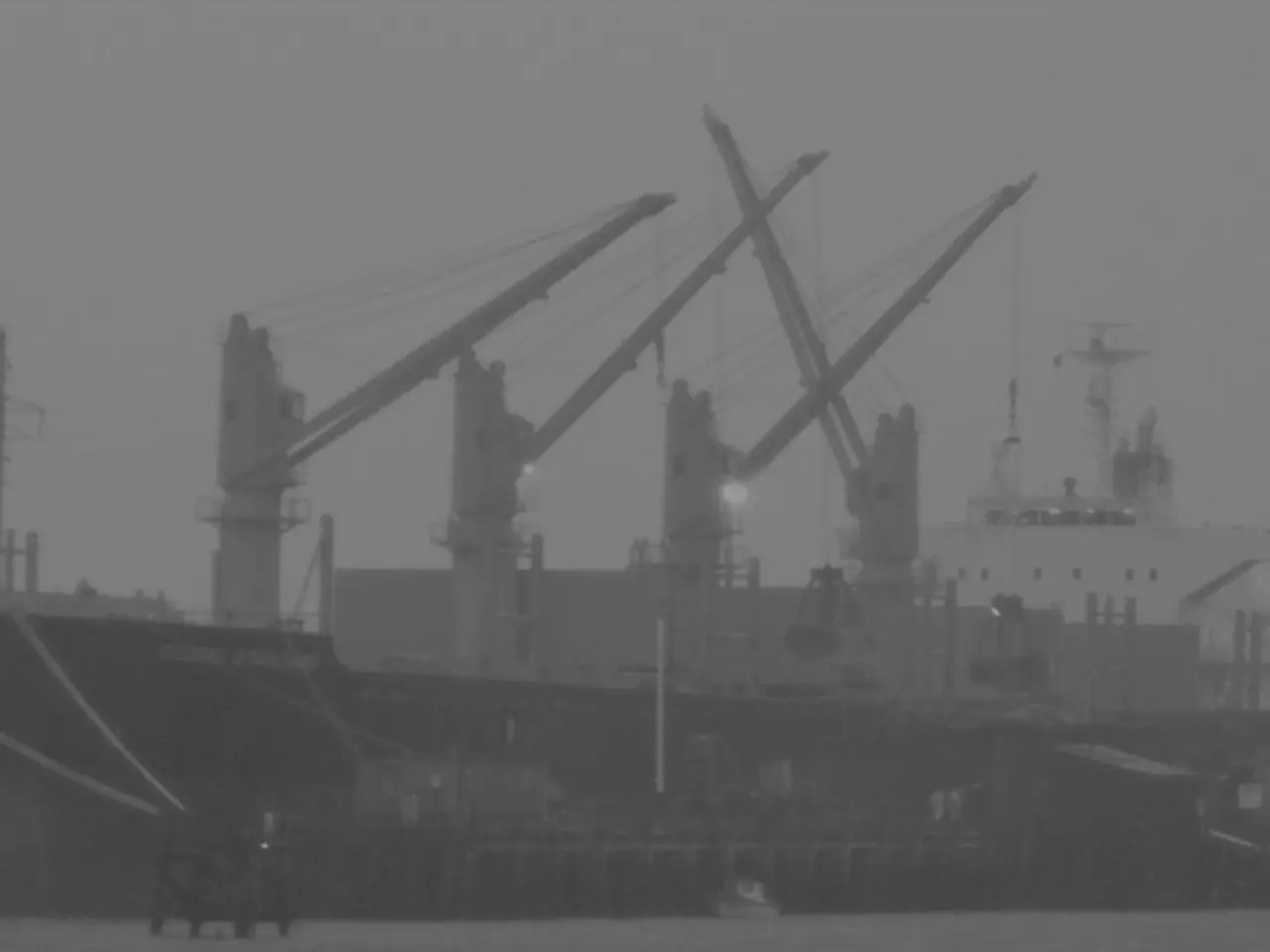Court in France thwarts Nice's restrictions on cruise ships to combat pollution and overcrowding.
In recent developments, French cities along the Mediterranean coast have taken steps to limit the number of large cruise ships docking in their bays. This move is aimed at addressing concerns about overtourism, pollution, and the impact on marine biodiversity.
On July 1, 2025, Mayor Christian Estrosi of Nice issued a municipal order banning cruise ships carrying more than 450 passengers from its bay. However, this ban faced immediate challenges, with Royal Caribbean's Voyager of the Seas ignoring the initial ban, leading to a publicised confrontation. Despite reissuing the ban, a French court overturned it on July 13, 2025, ruling that the mayor lacked the legal authority to impose such restrictions.
Cannes, another major city on France's Mediterranean coast, has adopted its own set of regulations that will take effect from January 1, 2026. These regulations ban cruise ships with a capacity of over 1,000 passengers from docking in its harbour. Larger ships will no longer dock directly in port but instead will anchor farther offshore, and passengers must be ferried to shore via smaller boats.
The city of Cannes plans to progressively ban all ships carrying more than 1,300 people by 2030 and reduce the number of very large cruise ships (over 5,000 passengers) by 48% starting in 2026. This approach is described as a "drastic regulation" to make cruise tourism in the city "less numerous, less big, less polluting, and more aesthetic," balancing economic benefits with environmental and social concerns.
The regulatory moves in Cannes, Nice, and Villefranche-sur-Mer reflect a growing backlash against overtourism in European Mediterranean resorts. The French government and local authorities are seeking to balance tourism’s economic advantages with the protection of marine ecosystems and urban quality of life. However, the enforcement of such restrictions is complex due to overlapping institutional authorities between local mayors and regional Prefets, as well as resistance from maritime unions and the cruise industry.
In a press release, Estrosi threatened to hold the State responsible if no measures are taken to prevent the harmful effects of mega cruise ships within a reasonable timeframe. The opposition to Estrosi's initial plan was not limited to the cruise ship industry but also included local businesses and transportation services.
The announcement to ban larger cruise ships in Nice and Villefranche-sur-Mer bay provoked "stupefaction" from the Cruise Lines International Association (CLIA). The order also limits the number of ships carrying more than 2,500 passengers in the Villefranche-sur-Mer bay to 65 per year and no more than one per day. Only the police chief of the Alpes-Maritimes region can organise the entry, exit, and movement of ships, according to the court.
In conclusion, while Cannes has adopted concrete regulations to limit large cruise ships starting in 2026, Nice and Villefranche-sur-Mer’s 2025 bans were overturned by a court ruling citing jurisdictional issues. The French Mediterranean cruise industry continues to face evolving and nuanced regulatory pressures aimed at balancing tourism benefits with environmental and social sustainability concerns.
[1] Le Figaro, 2025. "La Cour d'appel de Nice annule l'interdiction des navires de croisière à Nice et Villefranche." Le Figaro. [Online]. Available: https://www.lefigaro.fr/actualites-france/2025/07/13/01009-20250713ARTFIG00574-la-cour-d-appel-de-nice-annule-l-interdiction-des-navires-de-croisiere-a-nice-et-villefranche.php
[2] France 24, 2026. "Cannes bans cruise ships carrying over 1,000 passengers from docking." France 24. [Online]. Available: https://www.france24.com/en/20260101-cannes-bans-cruise-ships-carrying-over-1000-passengers-from-docking
[3] The Local, 2026. "Cannes imposes restrictions on large cruise ships." The Local. [Online]. Available: https://www.thelocal.fr/20260101/cannes-imposes-restrictions-on-large-cruise-ships
[4] Le Monde, 2025. "La cour d'appel de Nice suspend l'interdiction des navires de croisière à Nice et Villefranche." Le Monde. [Online]. Available: https://www.lemonde.fr/politique/article/2025/07/13/la-cour-d-appel-de-nice-suspend-l-interdiction-des-navires-de-croisiere-a-nice-et-villefranche_6071868_3224.html
- The international community is paying close attention to France's efforts to regulate cruise tourism due to the legal challenge faced by Nice in restricting large ships.
- As France moves to implement stricter environmental policies, it is clear that politics and policy-and-legislation will play a significant role in determining the future of the cruise industry.
- In the wake of France's decision to limit large cruise ships, environmental-science experts are researching alternative approaches to retain the economic benefits while minimizing the environmental impact of tourism.
- General news outlets report on the ongoing tension between France's environmental concerns and the interests of the cruise industry, which is critical to understanding the broader issues surrounding climate-change and global environmental concerns.
- With the growing awareness of the need for justice in environmental matters, nations such as France are stepping up their environmental protection efforts, demonstrating their commitment to a cleaner and safer planet for future generations.






